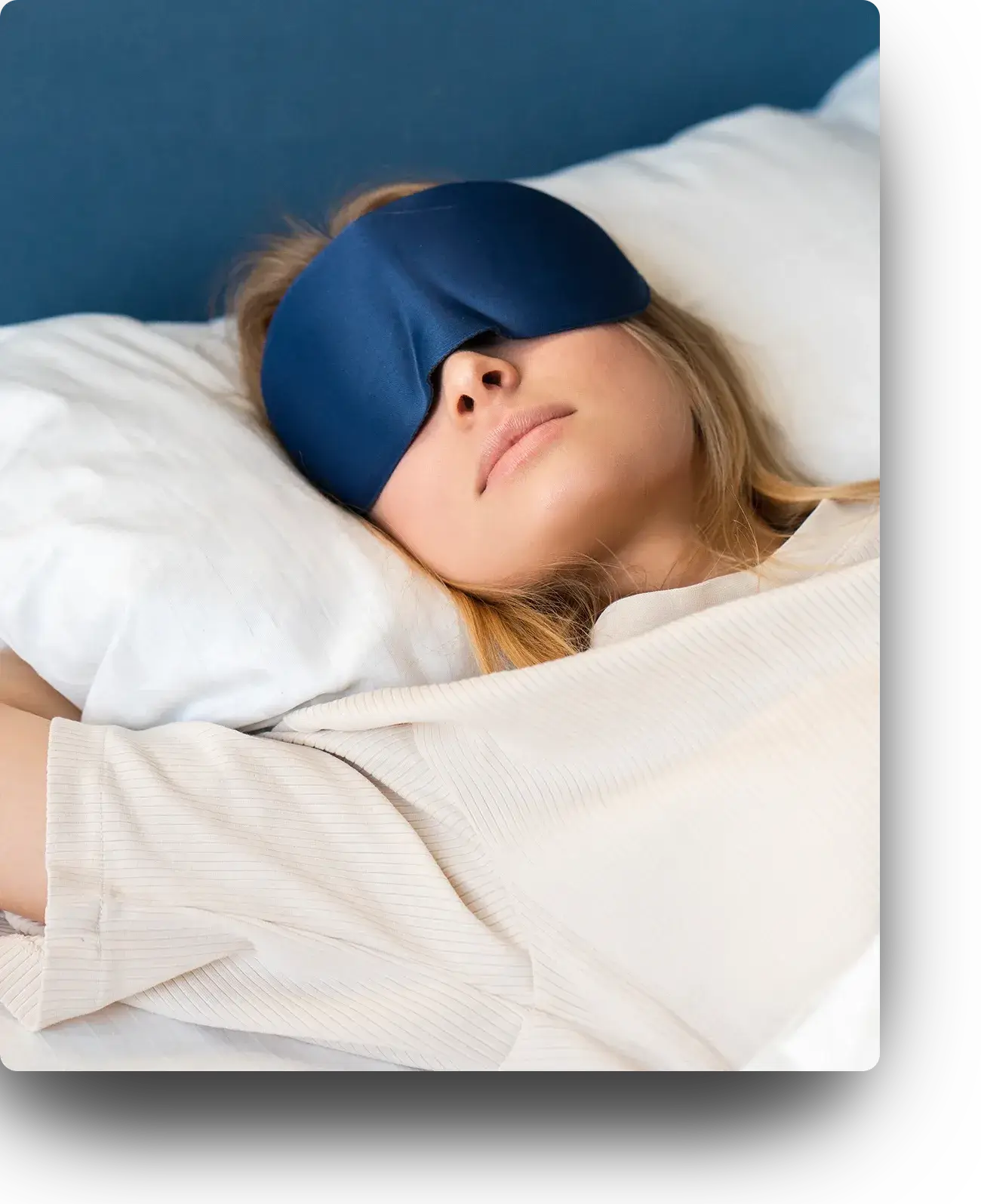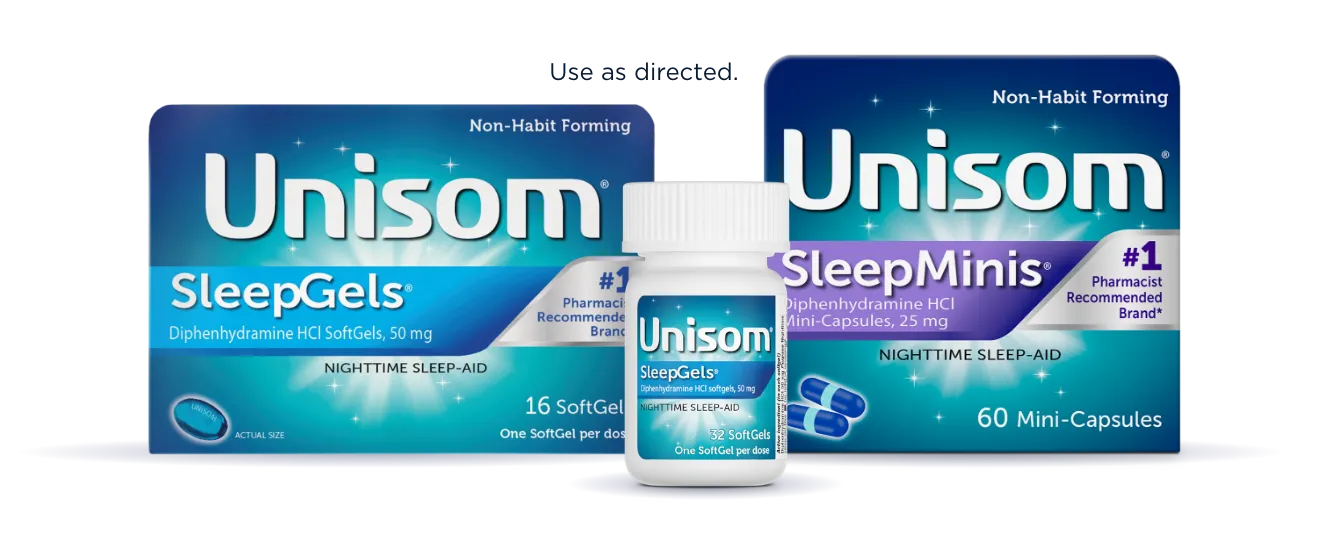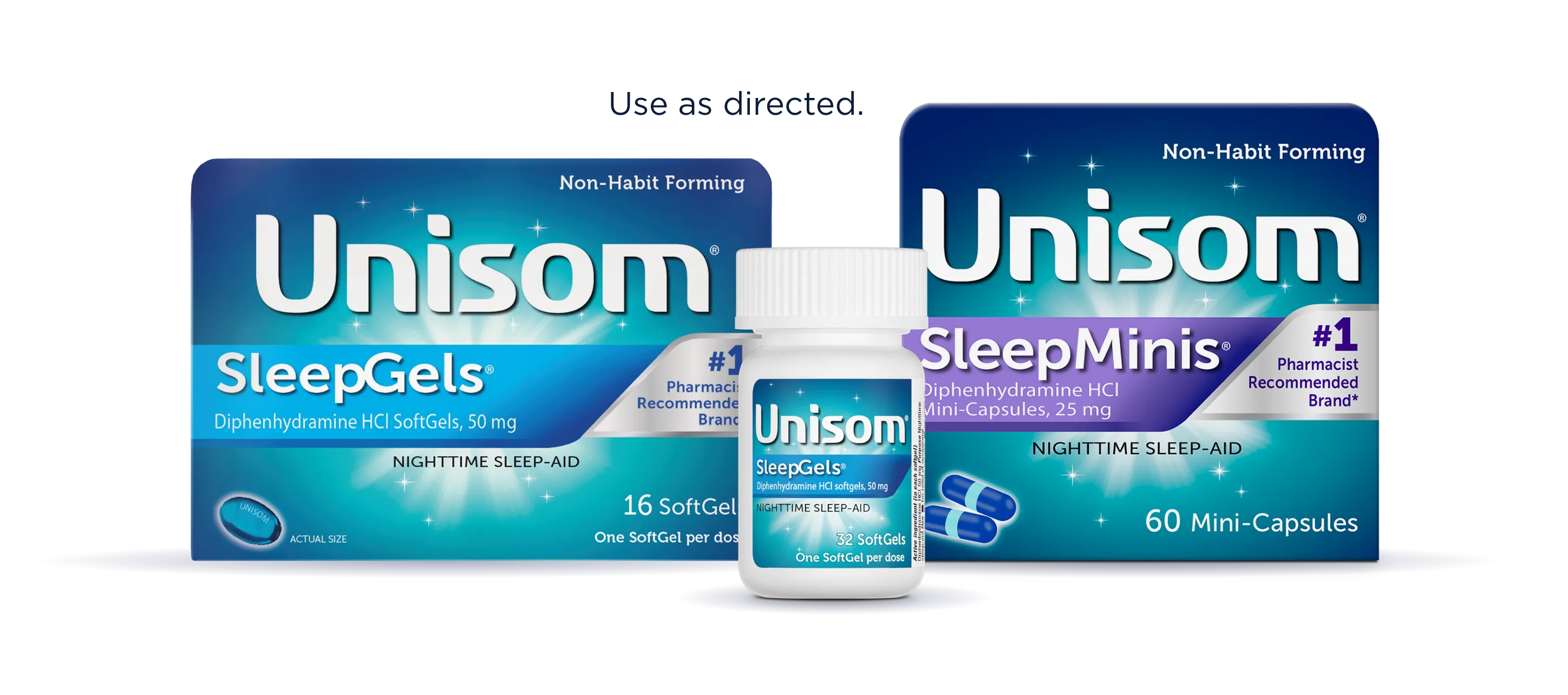According to the National Sleep Foundation, the average healthy adult should sleep for seven to nine hours each night.1 However, we all know that life gets in the way sometimes, making sleep debt inevitable from time to time. Whether it’s late nights at the office or a stressful life event, missing out on crucial shut-eye can harm pretty much all aspects of your well-being and quality of life—including your cognitive performance and physical health.
For many people, cramming in activities on the weekends that were neglected during the work week (including sleep) has become somewhat of the norm. This left us to wonder if it’s actually possible to catch up on lost sleep during the weekend after powering through a jam-packed week. And, more importantly, what the impact of making up for missed Zzzs has on your short- and long-term health. Below, we’re uncovering everything you should know about sleep debt, including key facts, how to catch up on lost sleep, and common sleep debt myths.
What Is Sleep Debt?
At least 30% of employed American adults are getting less than six hours of slumber per night, according to the Centers for Disease Control (CDC).2 When this happens over a period of time, you begin to rack up a sleep deficit—also known as “sleep debt”—based on the number of hours you’ve missed. So, in theory, if you were to miss two hours of sleep on Monday, you would then have two extra hours to make up for on Tuesday—and so on and so forth.
In other words, the hours you snooze are a bit like your bank account: When you withdraw too much, you create a deficit that eventually needs to be repaid in order to maintain a balanced account. Unfortunately, for people who can’t catch up on sleep due to a number of possible reasons, this can result in increased health risks over time.
What Causes Sleep Debt?
Sleep debt can be caused by pretty much anything that keeps you from dozing off at night—particularly behavioral choices, bad sleep hygiene, or schedule obligations. According to one survey on American time use, the most common activities that result in missed sleep include watching TV, work hours, leisure, travel time (commuting), relaxing, and socializing.3
Research has also found that an inconsistent sleep schedule, where you frequently change bedtimes between the work week and weekend, can create a “social jet lag” effect by throwing your body’s circadian rhythm out of whack.4 Certain lifestyle factors can also contribute to this as well, such as drinking or eating much later on the weekends. There are many possible reasons behind an inability to fall asleep and stay asleep, and therefore, it’s always best to speak with your healthcare provider regarding sleeplessness that persists longer than two weeks—as this can be a sign of a more serious underlying condition.
What Are the Consequences of Sleep Debt?
A good night’s rest is critical to helping you feel your very best. Without it, you may be more prone to a number of physical and mental health problems. Although it may not seem like a big deal to pull an all-nighter before a big presentation at work, high-quality sleep is essential to optimal cognitive performance—including alertness, attention, and memory.
Even if you don’t feel sleepy or notice the effects of sleep debt, skimping on even just a few hours of shut-eye can significantly affect your daytime functioning, according to one study.5 Insufficient sleep has also been linked to a higher risk of accidents, as well as diabetes, obesity, depression, anxiety disorders, heart disease, and immunodeficiency. Additionally, the effects of “social jet lag” on your circadian rhythm can also impact a number of biological functions, such as your appetite, body temperature, and metabolism.
Does Sleeping in on Weekends Cancel Out Sleep Debt?
So, what does the science actually say about sleep debt? Can you catch up on sleep—and more importantly—is sleep debt real or simply a myth? Current research shows that our bodies are not particularly forgiving to irregular sleep schedules.6 In other words, “catching up on sleep” on the weekends is not the same as consistently getting the recommended seven to nine hours of uninterrupted sleep—and your mind and body may require some additional recovery time. In fact, one 2016 study discovered that it took participants four days to fully recover after just one hour of sleep deprivation.7 This recovery period can be even longer for those with prolonged sleep deficit.
However, it’s not all bad news: Some newer evidence shows that although consistent, high-quality sleep is ideal, sleeping in on the weekend may help reduce some of the detrimental effects of sleep debt. For example, one recent study in the Journal of Sleep Research reported no significant difference between the mortality rates of participants who slept longer on the weekend to compensate for lost sleep, and those who didn’t.8 When in doubt, consult with a healthcare professional (such as a sleep specialist) with any questions or concerns around your sleep schedule and how to recover from sleep debt.
What’s the Best Way To Catch Up on Sleep?
When it comes to sleep debt, prevention is always the best strategy. This can be done by focusing on improving your sleep hygiene (also known as healthy sleep habits) in order to consistently promote a better night’s rest. Here are some key sleep hygiene tips to help you avoid sleep debt:
- Stick to a regular sleep schedule, even on weekends.
- Optimize your sleep environment to create a soothing sleep sanctuary.
- Improve any daytime habits that may contribute to sleep loss.
- Develop a relaxing nighttime routine that includes your favorite ways to unwind at bedtime.
Tips To Help You Recover From Sleep Debt
Understanding the best ways to help your body catch up on essential Zzzs is a great first step towards getting your slumber back on track. With these simple changes to your everyday routine, you’ll be well on your way to recovering from sleep debt:
- Start logging your sleep habits in a diary for increased accountability. Keeping a sleep diary can be an eye-opening exercise and help you keep track of how your behaviors may be affecting your slumber.
- Aim to head to bed earlier. Every little bit counts, even if it means hitting the hay just 15 to 30 minutes earlier each day until you reach your ideal bedtime.
- Try an afternoon power nap when needed. A 15 to 20 minute nap in the afternoon can help relieve feelings of daytime sleepiness, without interfering with your ability to fall asleep at night.
- Be mindful and focus on making sleep a top priority. By reframing how you view and prioritize sleep in your daily routine, it’s possible to become more mindful of the causes and effects of sleep deprivation.
- Consult with a healthcare professional. Talk to your doctor or a sleep specialist about your sleep concerns. They will be able to discuss the right type of non-habit-forming sleep-aid for your needs, and give an accurate assessment and diagnosis if a sleep disorder is suspected.
Rest Assured
Unisom® is here for you, as the #1 pharmacist- and doctor-recommended OTC sleep-aid brand. You can count on us to help you fall asleep, stay asleep longer, and wake up feeling refreshed,† with a range of options that include the below products.
Unisom® SleepGels® contain the histamine blocker sleep-aid diphenhydramine HCl. Blocking histamine production can help you fall asleep faster and stay asleep.
Unisom® SleepTabs® contain doxylamine succinate, which is a clinical-strength histamine blocker sleep-aid that works in a similar fashion to diphenhydramine. Unisom® SleepTabs® can help you fall asleep 33% faster and get a full night's sleep.
Find the Unisom product that’s right for you and download the Unisom Sleep Diary.
|
† These statements have not been evaluated by the Food and Drug Administration. This product is not intended to diagnose, treat, cure or prevent any disease. |
This article is not a substitute for medical advice. Unisom is only intended to help with occasional sleeplessness. If you are suffering from ongoing sleep concerns, seek the help of a medical professional.
Professional References
1. Hirshkowitz, Max et al. “National Sleep Foundation's sleep time duration recommendations: methodology and results summary.” Sleep health vol. 1,1 (2015): 40-43. doi:10.1016/j.sleh.2014.12.010
2. Centers for Disease Control and Prevention (CDC). “Short sleep duration among workers--United States, 2010.” MMWR. Morbidity and mortality weekly report vol. 61,16 (2012): 281-5.
3. Basner, Mathias et al. “American time use survey: sleep time and its relationship to waking activities.” Sleep vol. 30,9 (2007): 1085-95. doi:10.1093/sleep/30.9.1085
4. Dudley, Katherine, MD. “Weekend Catch-up Sleep Won’t Fix the Effects of Sleep Deprivation on Your Waistline.” Harvard Health, 24 Sept. 2019.
5. Ochab, Jeremi K., et al. “Observing Changes in Human Functioning during Induced Sleep Deficiency and Recovery Periods.” PLOS ONE, edited by Serena Scarpelli, vol. 16, no. 9, 2021, p. e0255771. Crossref, doi:10.1371/journal.pone.0255771.6. Depner, Christopher M., et al. “Ad Libitum Weekend Recovery Sleep Fails to Prevent Metabolic Dysregulation during a Repeating Pattern of Insufficient Sleep and Weekend Recovery Sleep.” Current Biology, vol. 29, no. 6, 2019, pp. 957–967.e4. Crossref, doi:10.1016/j.cub.2019.01.069.7. Kitamura, Shingo et al. “Estimating individual optimal sleep duration and potential sleep debt.” Scientific reports vol. 6 35812. 24 Oct. 2016, doi:10.1038/srep358128. Åkerstedt, Torbjörn, et al. “Sleep Duration and Mortality – Does Weekend Sleep Matter?” Journal of Sleep Research, vol. 28, no. 1, 2019. Crossref, doi:10.1111/jsr.12712
†These statements have not been evaluated by the Food and Drug Administration. This product is not intended to diagnose, treat, cure or prevent any disease.


